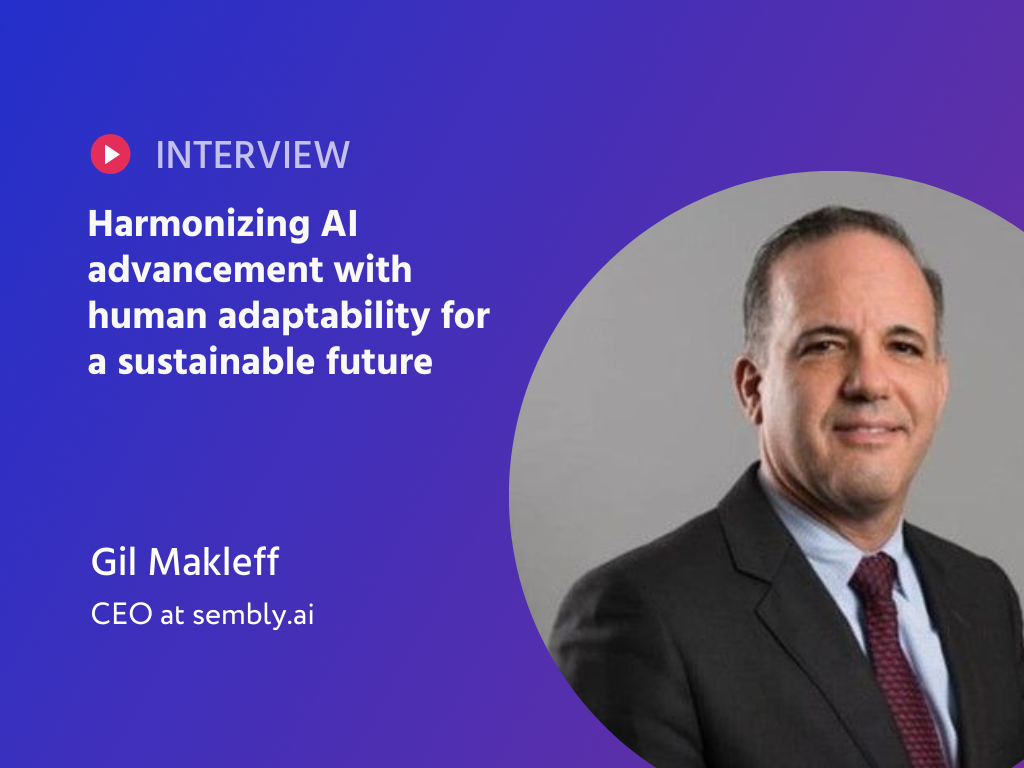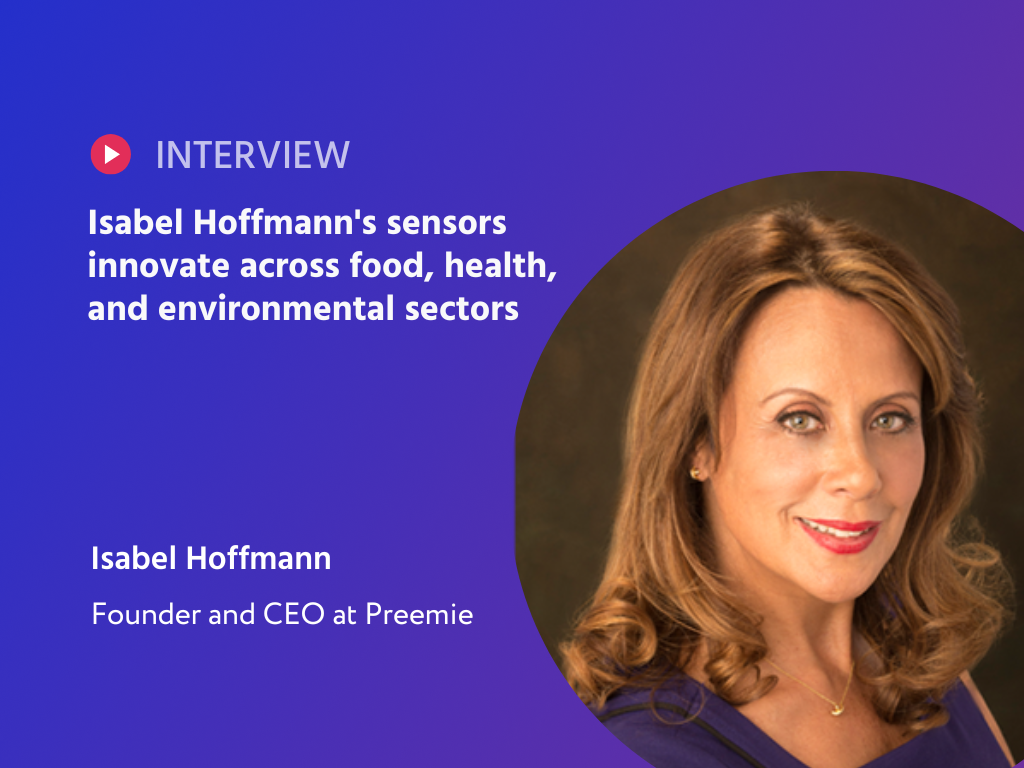At the Bright Founders Talk, YellowCard’s CEO Chris Maurice sat down with us on the Bright Founders Talk podcast and described the whirlwind of how he went from selling Pokemon cards online to heading a unicorn-bound startup in 16 countries.
YellowCard, a name turning heads in the crypto world after achieving rocket-propelling success since 2020. The Yellowcard goal is to, like Bitcoin's original white paper, provide global access to decentralized financial technology to anyone, regardless of location or identity.
Chris' formative years were confined to the areas of Southern Louisiana and his college years in Alabama, and he is now working on the African continent, a map that few in the West are familiar with. In this article, Chris discusses how to go from a Pokemon card seller to a CEO, why the answers aren't in the books, why you should be embarrassed of your V1 - and if you aren't, you're doing something wrong, perfectionism vs completionism, the future of crypto, and why it's dangerous to limit innovation.
From the Pokemon World to the African Continent
Chris's previous business experience was selling Pokémon cards online, so the transition to founding YellowCard, a company that now employs over 200 people and has raised $40 million in a series B capital round, was a significant step. How does one make such a drastic change, let alone learn about a new continent, culture, and social norms to ensure the success of your business? Chris explains that there are no manuals to read in order to prepare yourself.
“Nothing actually prepares you for having to deal with virtually everything. You deal with such a mishmash of unpredictable happenings, and so much goes wrong, that there's no way to prepare for it.”
"In terms of how the transition went, it's like pulling the emergency brake, getting out, and then getting into another car to start over.”
It's less of a transition and more like being shot out of a cannon
Are you embarrassed of your V1? No? Well, you’ve done something wrong…
Chris describes how, if there is one thing he wishes he had known at the start, it is that the most critical aspect of a product is to get it out into the market and then iterate on it.
We're running around saying that we're entrepreneurs, yet we don't have anything in the market
According to entrepreneurs, if you release a version of your software, product, or whatever it is and don't go back and aren't terribly embarrassed by it, you waited far too long to put it out there.
"Perfection isn't going to cut it. Put something out there that may not function flawlessly for everyone, and then improve it for the 15% to 20% of those that it does not work for."
Get it out there and figure the rest out later
From Perfectionist to ‘Completionist’
Chris explains that he is not a classic perfectionist, but rather someone who has difficulty putting down a task until it is accomplished. Chris explains that by doing so, we shift our focus from perfection to completeness.
Even this can be a significant hurdle to iterating on a product. Chris explains how they got started marketing one of their goods in Nigeria. They assured that the website could handle an Android phone from 2012 that had not been updated after examining the demographics of Nigeria in terms of phone usage, and types of phones that use the needed browsers. The team set restrictions on their product, but they were necessary; unpleasant decisions had to be taken to get an MVP out there.
You need to launch something that can get you further down on the roadmap
The more scope creep that you allow, into that initial product, the longer it's going to take
Bare as Bones
The YellowCard original MVP was bare bones; no crypto wallet, and so, they were an exchange.
“Many of our customers are new to crypto and have yet to create a crypto wallet. They didn't have anywhere to send this crypto yet we were asking them for a wallet address. Wow, what were we thinking? We didn't even have a wallet system. We didn't have anywhere for people to be able to put the crypto. All we did was support bank transfers in Nigeria."
“Here's our bank account, send us money, and then tell us where to send the coins. But it worked. And it was good enough to get volumes flowing.”
Chris and his early team delayed the official release of the product until 2019 at the earliest, taking around four years to pivot to what they have now. In 2015 their focus was not on Africa. It wasn't until 2015 that Nigeria even appeared on the map for them.
The focus on Africa arose as a result of the difficult regulatory process in the United States. There was a never-ending stream of new problems to deal with.
"After some time had passed and we realized something quite major: we can't wait any longer. I won't sit here and offer advice I haven't earned through hard experience, and so the idea of working with the African continent came about."
Going from 1 million a month to 1 million overnight
COVID hits, and almost overnight, we're doing a million dollars a day
“COVID was the rocket ship roller coaster that got things set off. We went from a plain startup to something huge but with the capabilities of a small startup. We had to figure everything out on the go. We had a few people that we could kind of turn to for advice and mentorship but, frankly, there's just not a lot of people that have done something like this.”
We're in a unique industry and on a continent that most people can't even point out on a map
Misconceptions about expanding in Africa
The biggest challenge with growing across the continent - is dealing with diverse countries that in a lot of cases have a lot of unique different cultures. Chris tells how Nigeria is half Christian, half Muslim, the Muslim half is very different from the Christian half in terms of culture for religious and historical reasons.
“There's this misconception that Africa is just sort of one big conglomerate. And I think people, especially in the West tend to sort of lump the whole continent together. Frankly, doing that would be like lumping all of Europe together.”
Botswana and Nigeria have about as much to do with each other as the UK and China
Boots on the ground
Chris describes how, as CEO, he must be thoroughly familiar with the industry into which they are venturing in order to assess the situation and make sound decisions. This is primarily due to the people you already have on the ground and the efficiency with which they are gathering market data.
There are no books that offer advice on doing business in Botswana or Zambia. Finding that person who understands the market and how people work, and then soaking up as much information as possible from them, is critical.
There are two unsuccessful approaches to this, says Chris. Option one is to stay in one's immediate vicinity. Take Zambia, for example…
“You could only have Zambians on the team giving them the floor to decide how to run the show or you could rely only on your current team and not those familiar with the area. In reality, the local team has the most in-depth understanding of how things work in the local environment; this understanding is critical, but it risks being too narrowly focused; thus, the two must be integrated."
Take those learnings from other places and localize them
"You need that good local talent. But then also, you need somebody that has sort of a broader view that can work with them to bring everything together.”
The future of Crypto: a turbulent few years
Chris tells how Crypto is going to be ‘just fine’. After having been in this field since 2013, and seen every market upswing, downturn, and app boom/bust but a future without it is not possible. Although his personal portfolio is looking a little battered and bruised, he tells how, from a business standpoint, all is performing well because they focus on the technology and not the pricing.
Chris tells how people should reconsider the basic concept of bitcoin, which is peer-to-peer electronic cash.
There is more to cryptocurrency than speculation and pricing
“Perhaps the true motive behind cryptocurrencies is to make financial transactions easier in emerging countries such as Ukraine and Africa. We need to figure out how to spread the word that using this technology to handle your own funds provides you with better protection in locations where you may not be able to trust the local currency.”
“I am almost entirely focused on technology. If our investors wanted to be exposed to Bitcoin, they'd just buy it, right? So we're completely focused on technology and the problems that it solves, rather than what the price of Bitcoin is.”
Anyone on the planet should be able to use this technology
The technology itself, whether you name it crypto or blockchain technology, creates a framework that allows people to truly control their own wealth and finances, regardless of how much they have. Whether it's a couple of dollars or a couple of hundred thousand dollars and it's this which Chris and the Yellow team strive for - financial inclusion.
It permits things that in many countries simply do not exist in practice, such as free international transfers and the ability to receive remittances in a cost-effective manner, as well as the ability to save money against inflation.
Three pillars to regulation
The YellowCard approach to regulation
Number one - Protect the consumer
“If I am the Kenyan government, and I'm putting laws in place, the first rule of those laws should be protecting the consumer, protecting them from outside malicious threats.”
Number two - Prevention of money laundering and criminals
“People should not be financing terrorism via any country's financial system.”
Number three - promoting innovation
“Often gets overlooked. Any regulation that hits the books should promote innovation, because without innovation, countries stagnate and economies die. There's no job growth, there's no GDP growth. There's nothing without innovation.”
Innovation shouldn’t be limited
Chris explains how innovation should never be limited, and that one should only contemplate what would happen if the same thing were done to the internet.
These regulations should not stifle growth and invention since innovation cannot be halted because it will always find a way around or a better area to grow. For example, Google and Facebook would not have opened their doors in the United States if these restrictions were in place. Chris describes how all of these businesses would still exist, albeit in a different location.
"All of this innovation and everything that has transpired around the world happens because governments and regulators allow it to happen and support it."
Making up ground: Can you get a hold on innovation?
“No. It will never completely catch up. When you allow for innovation, it will always surpass the government. The only way to genuinely catch up is to prohibit everything and let the economy collapse.”
“Regulators will always be reactive because the regulators, the financial regulators in any given country, are not the ones that come up with the idea of cryptocurrency; someone else does, and they must react to it.”
Are they ever going to catch up? No, but isn't it part of the game?




